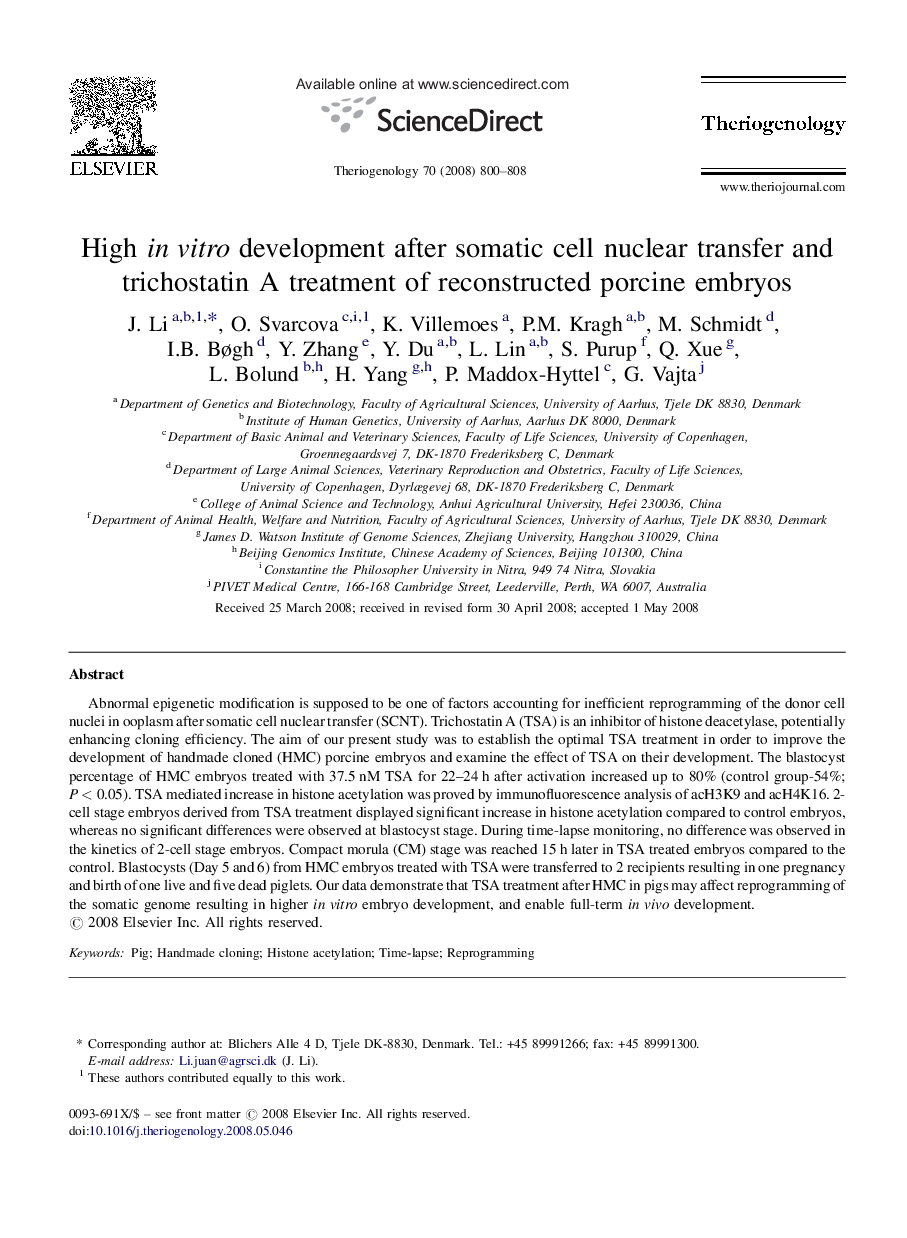| Article ID | Journal | Published Year | Pages | File Type |
|---|---|---|---|---|
| 2098220 | Theriogenology | 2008 | 9 Pages |
Abnormal epigenetic modification is supposed to be one of factors accounting for inefficient reprogramming of the donor cell nuclei in ooplasm after somatic cell nuclear transfer (SCNT). Trichostatin A (TSA) is an inhibitor of histone deacetylase, potentially enhancing cloning efficiency. The aim of our present study was to establish the optimal TSA treatment in order to improve the development of handmade cloned (HMC) porcine embryos and examine the effect of TSA on their development. The blastocyst percentage of HMC embryos treated with 37.5 nM TSA for 22–24 h after activation increased up to 80% (control group-54%; P < 0.05). TSA mediated increase in histone acetylation was proved by immunofluorescence analysis of acH3K9 and acH4K16. 2-cell stage embryos derived from TSA treatment displayed significant increase in histone acetylation compared to control embryos, whereas no significant differences were observed at blastocyst stage. During time-lapse monitoring, no difference was observed in the kinetics of 2-cell stage embryos. Compact morula (CM) stage was reached 15 h later in TSA treated embryos compared to the control. Blastocysts (Day 5 and 6) from HMC embryos treated with TSA were transferred to 2 recipients resulting in one pregnancy and birth of one live and five dead piglets. Our data demonstrate that TSA treatment after HMC in pigs may affect reprogramming of the somatic genome resulting in higher in vitro embryo development, and enable full-term in vivo development.
